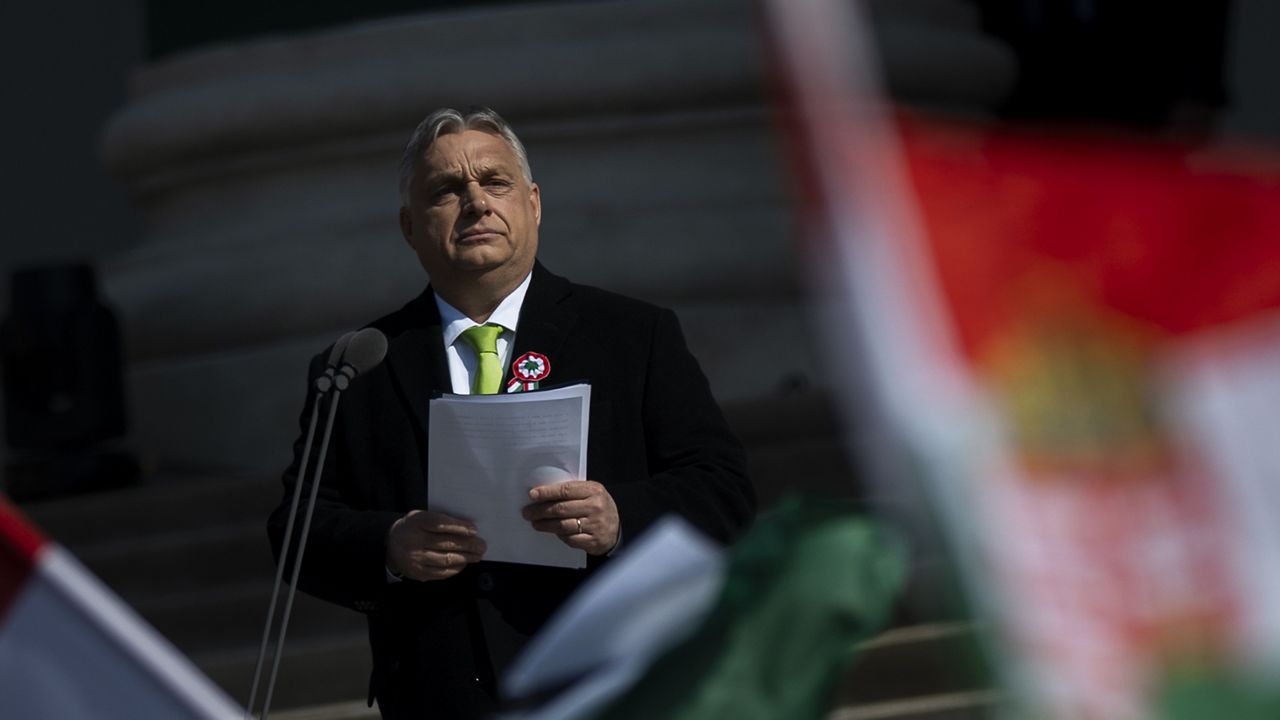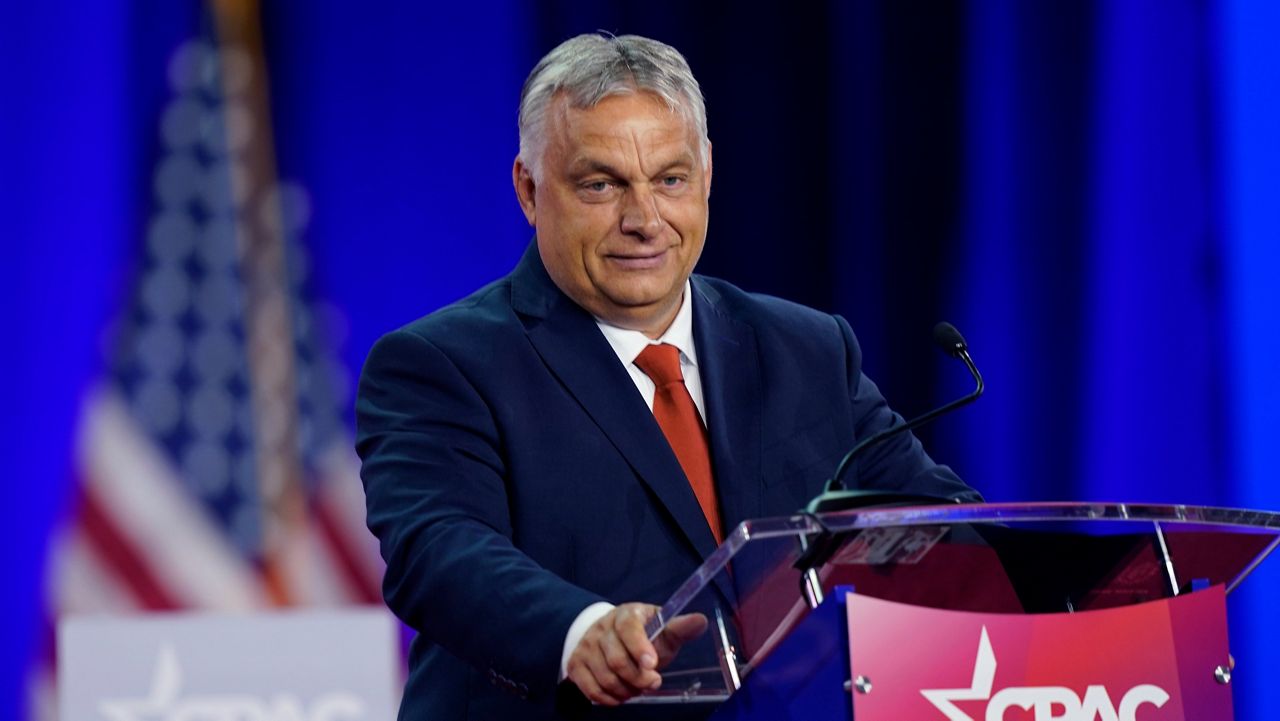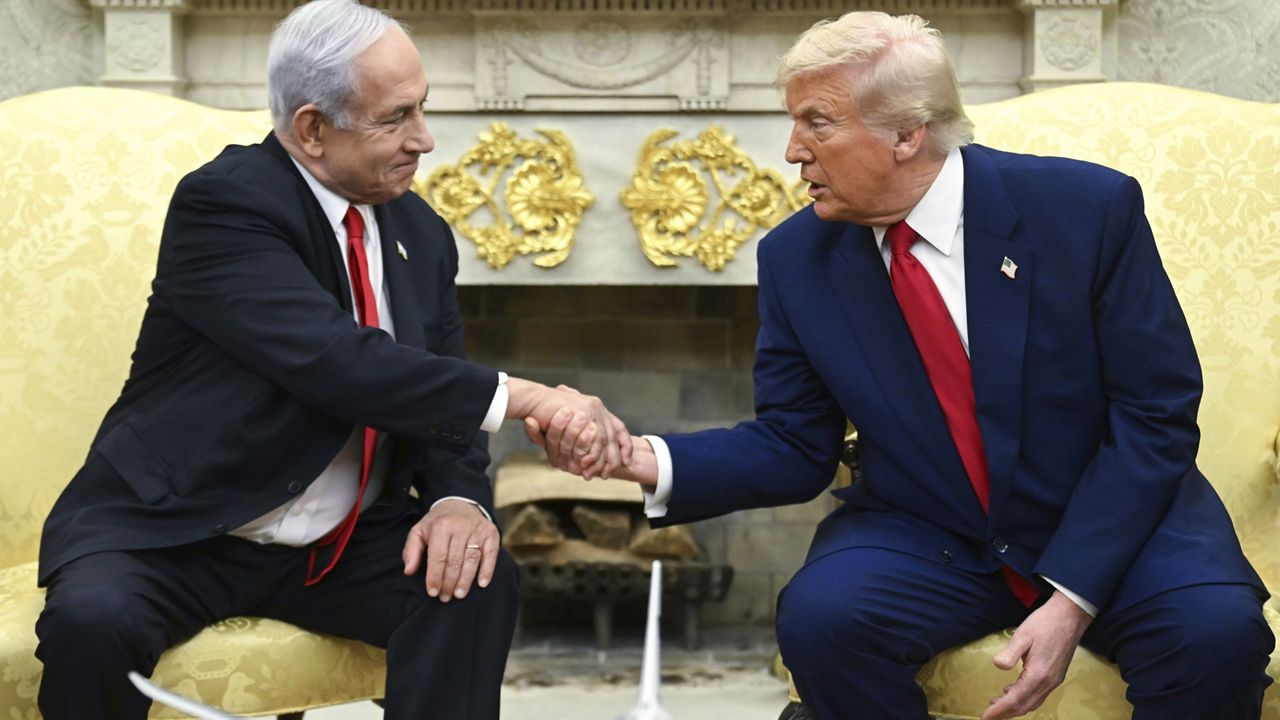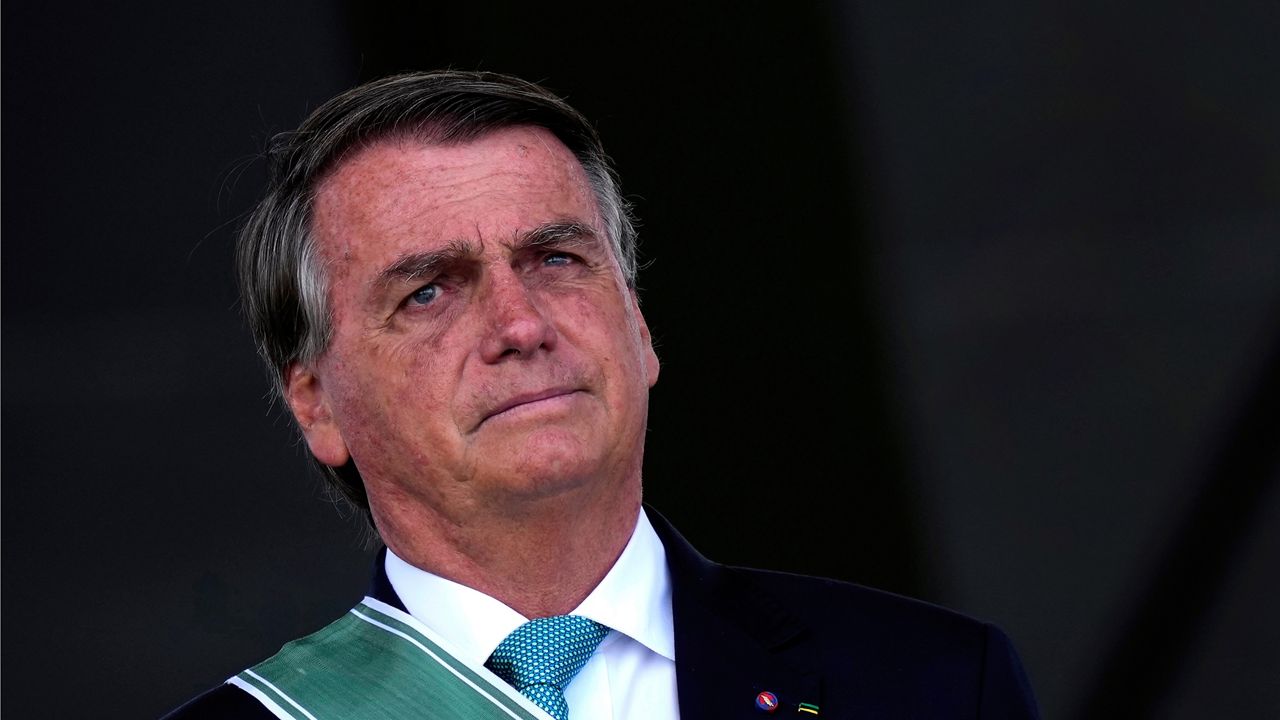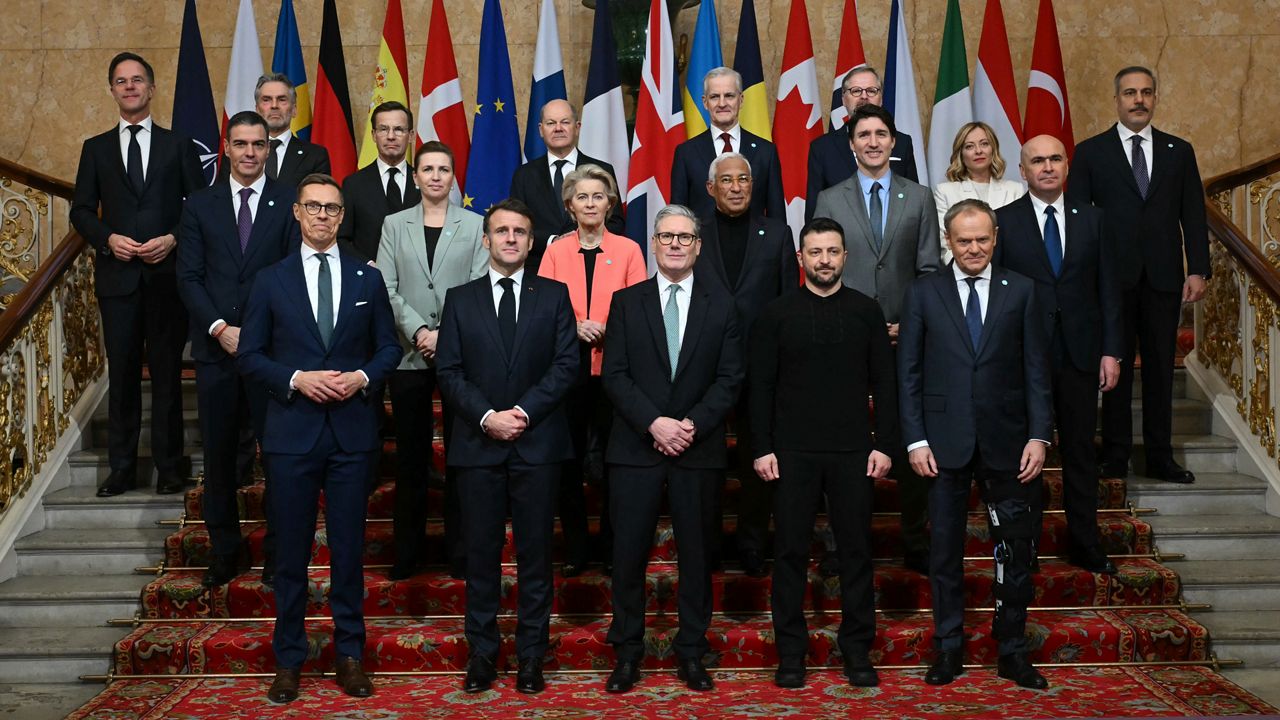Hungarian Prime Minister Viktor Orbán sought to mobilize support for his brand of right-wing populism in a holiday speech on Friday, urging his spectators to help him "occupy Brussels" in European Union elections this summer.
Orbán's address, coinciding with a national holiday commemorating Hungary's failed 1848 revolution against Habsburg rule, railed against the EU and compared it to imperial occupiers that have dominated Hungary throughout history.
The nationalist leader, speaking from the steps of the National Museum in central Budapest, drew a sharp contrast between his country and the "Western world," accusing the latter of being a source of rootlessness and destruction.
"They start wars, destroy worlds, redraw countries' borders and graze on everything like locusts," he told the crowd, many of whom were bused into Budapest for the occasion. "We Hungarians live differently and want to live differently."
He was speaking less than three months before EU elections that are expected to show a surge for far-right parties across the continent that share many of Orbán's key positions.
Opposition to immigration and LGBTQ+ rights, as well as a commitment to national pride and sovereignty, featured heavily in his comments on the national holiday, which often bore the tone of a campaign speech.
"Brussels is not the first empire that has set its eyes on Hungary," Orbán said, referring to the EU's de-facto capital. "The peoples of Europe today are afraid that Brussels will take away their freedom. ... If we want to preserve Hungary's freedom and sovereignty, we have no choice: We have to occupy Brussels."
There is heightened political tension in Hungary following the resignation in February of the president, Orbán ally Katalin Novák, amid outrage over her issuing of a pardon to a convicted accomplice in a case of child sexual abuse in a state-run orphanage.
The scandal also led to the resignation of a former justice minister and put unprecedented political pressure on Orbán's long-serving government, which has led Hungary since 2010.
Hungary's position among its partners and allies has also faced strain in recent months. On Thursday, in a speech reflecting on the 25th anniversary of Hungary's NATO membership, U.S. Ambassador David Pressman highlighted concerns over Hungary's reliability as an ally in the military alliance, stating that Orbán's government "appears to have little interest in constructive dialogue" to solve disagreements with its partners.
In the speech in Budapest, Pressman criticized Hungary's recent obstructionism toward Sweden's NATO accession, and accused Orbán of pursuing dangerous relationships with Russia and China.
Orbán's government, Pressman said, "labels and treats the United States as an 'adversary' while making policy choices that increasingly isolate it from friends and allies."
Hungary's government also faces a challenge from an unexpected source at home: Péter Magyar, the former husband of one-time justice minister and Orbán ally Judit Varga.
Once an insider within Orbán's Fidesz party, Magyar in recent weeks has publicly called for fundamental change and gathered a significant following through internet posts and widely watched interviews.
On Friday, Magyar addressed a crowd of around 10,000 people in Budapest where he announced his plans to form a new political party to challenge Fidesz's 14-year grip on power and act as an alternative to Hungary's fragmented opposition.
"If Hungarian voters finally see a real political force that cannot be bribed or blackmailed, that is honest, straight, open and free of extremes, then more and more people will believe that there is hope for change ... after decades in a political swamp," Magyar said in a speech, where he also accused Orbán's government of corruption and economic mismanagement.
Yet as Orbán hopes for success this summer for conservative forces in Europe, he has also achieved close ties with parts of the American right, including former President Donald Trump.
The Hungarian leader last week visited the United States where he met with Trump at his Mar-a-Lago estate in Florida, and openly called for a Trump victory over President Joe Biden in November elections.
In his speech on Friday, Orbán said that support for Trump showed that American voters were "rebelling," and predicted a political shift that will favor conservatives in Europe and the United States in 2024.
"This year will be a turning point," he said. "At the beginning of the year we were still alone, and by the end of the year we will be the majority."




